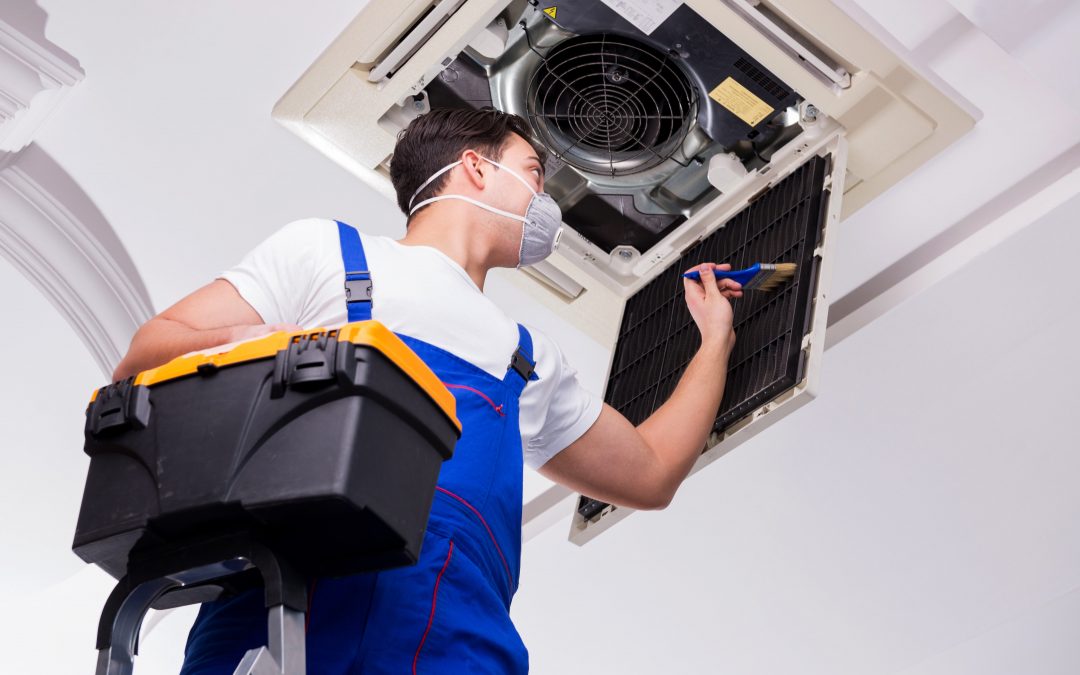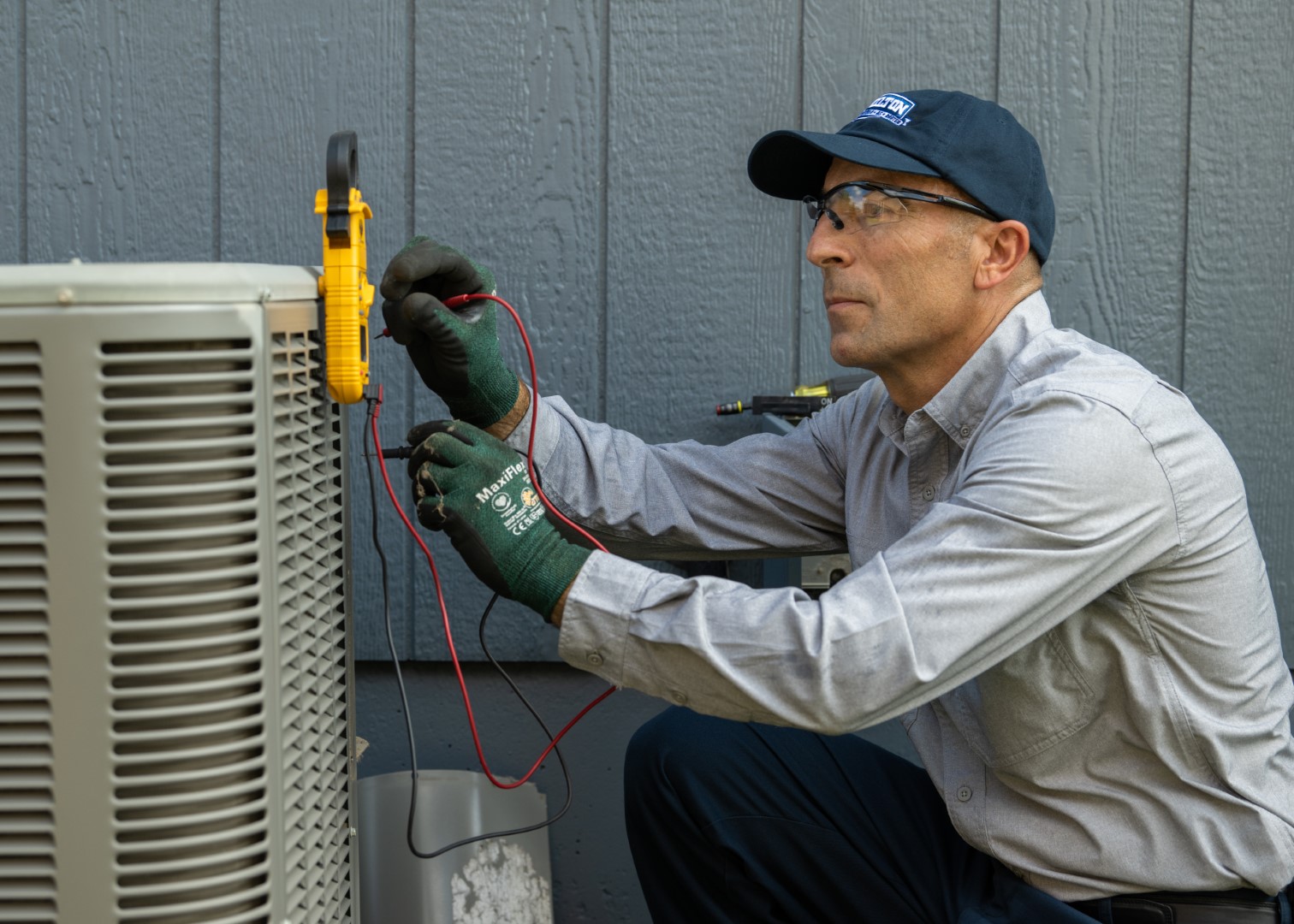The ultimate guide to ac unit replacement for homeowners
Everything about HVAC: Identifying Common Issues and Effective AC Fixing Techniques
Heating and cooling systems are important for maintaining interior convenience. Comprehending their components and capability is crucial for determining usual concerns. House owners frequently face issues such as ineffective air conditioning, unusual smells, or increasing energy expenses. These signs can indicate underlying problems that might require attention. Discovering DIY troubleshooting strategies can be useful, yet understanding when to seek expert assistance is just as essential. What actions can be taken to guarantee lasting efficiency?
Understanding Your A/c System: Components and Performance
A HVAC system, commonly taken into consideration the foundation of interior environment control, consists of a number of vital components that collaborate to regulate temperature and air top quality. The key elements include the heating system, air flow system, and air conditioning system. The home heating device, typically a heating system or boiler, produces heat during colder months, while the air conditioning unit cools indoor areas during the summer season.

Usual HVAC Problems Property Owners Experience
Home owners often face several common HVAC problems, including inconsistent temperature distribution throughout their space. Additionally, unusual sounds throughout procedure can suggest underlying problems that call for focus. Attending to these worries immediately is necessary for preserving optimal system efficiency.
Irregular Temperature Distribution
Several houses experience the discouraging problem of inconsistent temperature level circulation, where particular rooms feel uncomfortably warm while others stay too cool. This trouble frequently arises from a selection of aspects, including inadequate insulation, blocked vents, or an improperly sized a/c system. When air ducts are not sufficiently sealed or when furnishings obstructs air movement, some rooms might receive inadequate cooling. In addition, thermostat placement can substantially affect temperature level policy; a thermostat situated in a sunlit area might misstate the overall temperature of the house. Routine upkeep, including cleansing filters and ensuring ductwork is clear, can help ease these discrepancies. House owners might likewise take into consideration zoning systems to better control temperatures throughout various locations of the home, advertising a more comfortable living setting.
Uncommon Noises During Operation
When a HVAC system operates, uncommon sounds can show underlying issues that need focus. Property owners might experience a variety of audios, such as grinding, squeaking, or hissing. Grinding noises typically signify damaged bearings or parts, while squeaking can suggest loose belts or parts needing lubrication. Hissing may suggest a cooling agent leak, which can endanger the system's efficiency. Furthermore, banging noises may indicate loosened ductwork or a concern with the blower follower. Each of these sounds acts as a warning, triggering house owners to check out better. Overlooking these indicators can bring about more significant troubles and expensive repairs. Regular upkeep and timely interest to unusual noises can enhance system longevity and efficiency, ensuring a comfy living setting.
Indicators That Indicate Your AC Requirements Repair Service
Exactly how can one tell if their air conditioning unit is in demand of fixing? A number of signs might suggest underlying problems requiring specialist focus. If the AC stops working to cool the room successfully, it may recommend a refrigerant leakage or compressor malfunction. In addition, a boost in energy expenses without corresponding use changes can signal inadequacy in the system. House owners should additionally look out to uncommon smells rising from the unit, which can indicate mold and mildew development or electrical issues. If the AC regularly cycles on and off, it might be an indication of a faulty thermostat or other mechanical issues. Finally, the existence of water merging around the system can show a blocked drainpipe line. Recognizing these signs early can save time and cash, making certain that the air conditioning system operates effectively and successfully.
Do It Yourself Troubleshooting Techniques for HVAC Issues
When dealing with cooling and heating issues, property owners can utilize a number of do it yourself fixing strategies to recognize the trouble. Secret methods include examining thermostat settings, inspecting air filters, and examining water drainage problems. These steps can aid determine usual breakdowns prior to seeking expert aid.
Examining Thermostat Setups
What actions should home owners require to ensure their thermostat settings are appropriate? They ought to verify the thermostat is set to the desired temperature and setting, whether home heating or cooling. Checking for a clear display screen and validating the thermostat is not set to "hold" or "vacation" mode is important. Property owners should additionally confirm that the thermostat is level and mounted in a place totally free from drafts, direct sunlight, or various other temperature affects. Furthermore, recalibrating the thermostat can aid offer exact readings. If the thermostat runs on batteries, replacing them might solve any concerns. By systematically reviewing these aspects, house owners can commonly identify and fix thermostat-related issues, promoting excellent heating and cooling system performance.
Inspecting Air Filters
Air filters play a necessary role in maintaining suitable heating and cooling performance. They catch dust, allergens, and other particles, making sure clean air flow. With time, filters can end up being clogged, minimizing air movement and efficiency. To check air filters, people should first find the filter, often located in the return air duct or near the heating system. As soon as situated, they should assess the filter's condition-- if it shows up unclean or discolored, it most likely demands substitute. The majority of filters require changing every 1-3 months, depending upon usage and environmental aspects. Normal inspection and timely replacement of air filters not only enhance air quality Going Here however likewise extend the life expectancy of a/c systems, preventing potential breakdowns and pricey fixings.
Evaluating Water Drainage Issues
Just how can homeowners effectively identify and deal with drainage issues within their cooling and heating systems? They should evaluate the condensate drainpipe line for blockages or blockages, which can lead to water buildup. Home owners might utilize a wet/dry vacuum to clear any kind of debris obstructing the line. Next off, inspecting the drain frying pan for rust or leaks is necessary, as a harmed pan can cause water to overflow. Normal cleaning of the drainpipe line with a combination of vinegar and water helps protect against future blockages. Additionally, making certain appropriate slope of the drainpipe line promotes reliable water flow. If these do it yourself methods do not deal with the concern, getting in touch with an expert HVAC service technician may be needed to stay clear of prospective water damage and system failure.
When to Call a Specialist for Air Conditioner Repairs

While some air conditioner issues can be dealt with with do it yourself approaches, there are situations where calling an expert comes to be essential. House owners need to look for skilled assistance when they experience consistent troubles, such as poor air conditioning, strange noises, or unusual odors rising from the unit. These symptoms may suggest deeper problems that need additional info specialized expertise and devices to detect and fix properly.

Preventative Upkeep Tips for Cooling And Heating Long Life
Normal preventative upkeep can substantially boost the durability of a/c systems. House owners should schedule annual examinations by qualified professionals to examine system effectiveness and identify potential concerns. Frequently altering or cleaning air filters is crucial, as this warranties appropriate airflow and lowers stress on the system. Additionally, examining and sealing ductwork avoids energy loss and boosts general performance.
It is additionally recommended to maintain the outside unit free from debris and plant life, permitting peak air flow and warmth exchange. House owners should check the condensate drain for obstructions to avoid water damages and mold development. Preserving ideal thermostat settings and making use of programmable options can enhance power effectiveness. Ultimately, documenting upkeep tasks aids track service history and can aid in determining reoccuring issues (ac look these up fix). By adhering to these preventative measures, individuals can make best use of the efficiency and life expectancy of their cooling and heating systems
Frequently Asked Questions
Exactly how Commonly Should I Change My Cooling And Heating System Filters?
HVAC system filters ought to usually be changed every one to three months, depending upon usage, filter type, and environmental elements. Regular replacement helps maintain efficiency and air quality, ensuring peak system efficiency throughout the year.
What Dimension Heating And Cooling System Do I Required for My Home?
To figure out the suitable HVAC system dimension for a home, one should take into consideration square video footage, insulation quality, and neighborhood climate. Consulting a professional can assist guarantee optimal efficiency and convenience for the particular living room.
Are There Eco-Friendly HVAC Options Available?
Yes, green heating and cooling alternatives are offered, consisting of energy-efficient heatpump, solar-powered systems, and geothermal home heating. These alternatives lower energy usage and environmental influence, promoting sustainability while preserving reliable climate control for household and commercial rooms.
How Can I Enhance My cooling and heating System's Energy Effectiveness?
To boost heating and cooling power performance, one can frequently preserve the system, seal air leakages, install programmable thermostats, utilize energy-efficient filters, and assurance adequate insulation throughout the home to decrease power intake and enhance performance.

What Is the Typical Life-span of an A/c System?
The average life expectancy of a heating and cooling system typically varies from 15 to 25 years, depending on aspects such as upkeep, usage, and the top quality of installation. Normal upkeep can considerably expand its operational long life.
Verdict
In recap, a detailed understanding of cooling and heating systems equips home owners to determine usual problems and address small issues properly. Recognizing indicators of breakdown, employing DIY fixing strategies, and focusing on regular maintenance can boost system efficiency and performance. When faced with intricate repair work, getting professional help is crucial to ensure security and durability. By promoting recognition and proactive treatment, people can take pleasure in a comfy indoor setting while lessening unexpected costs related to heating and cooling failures.